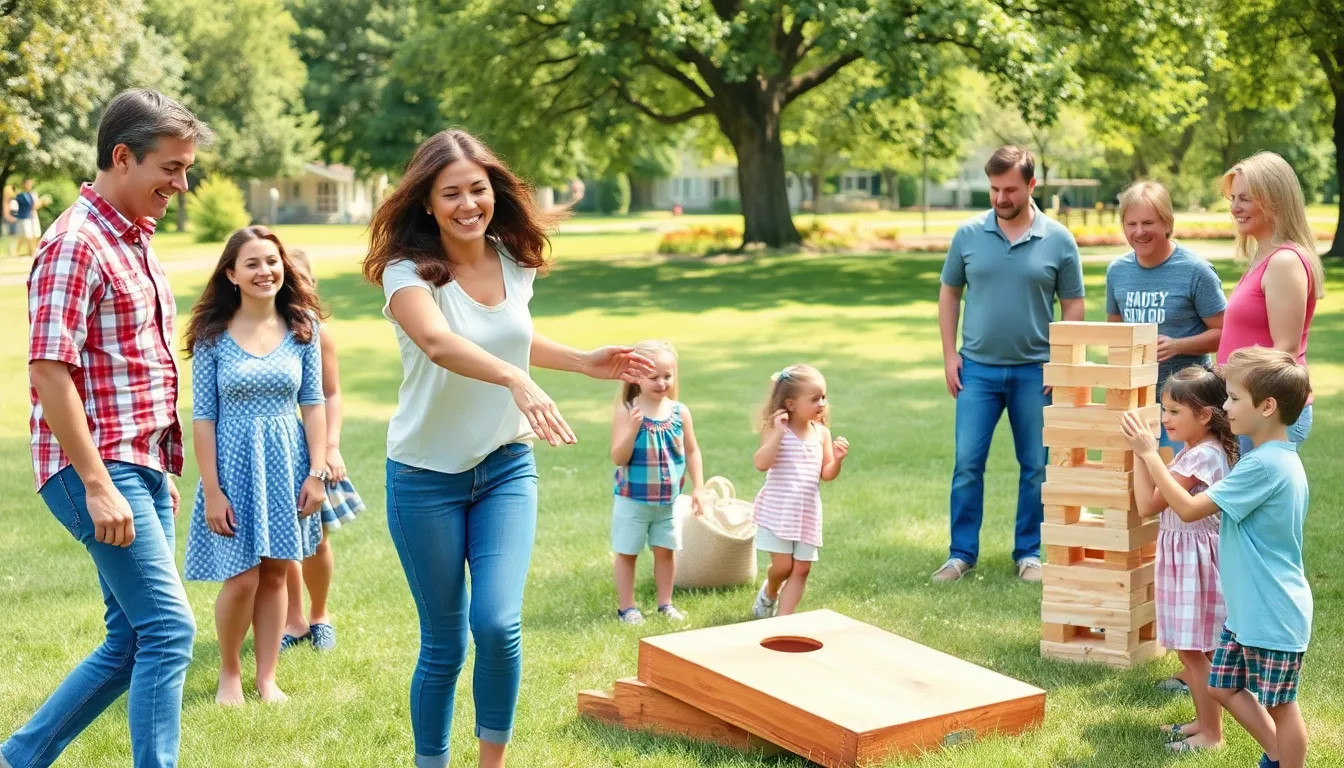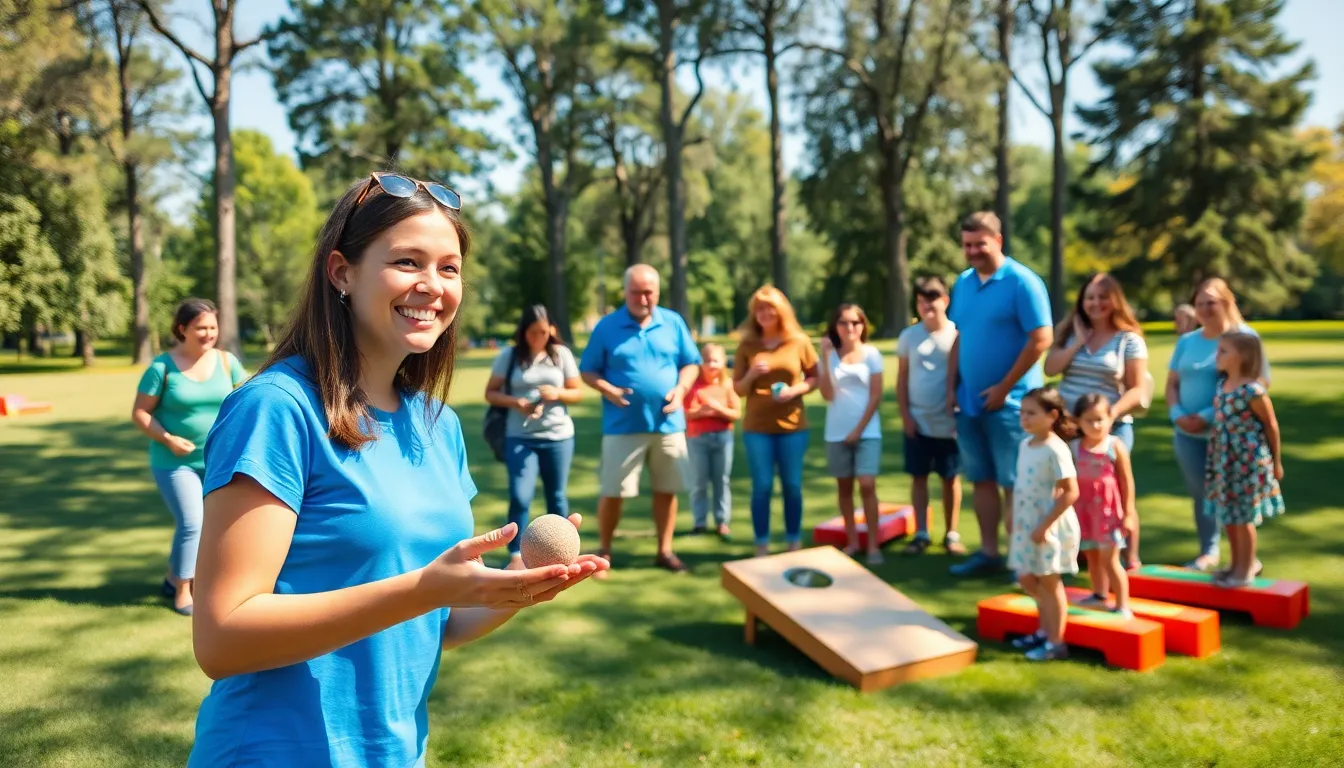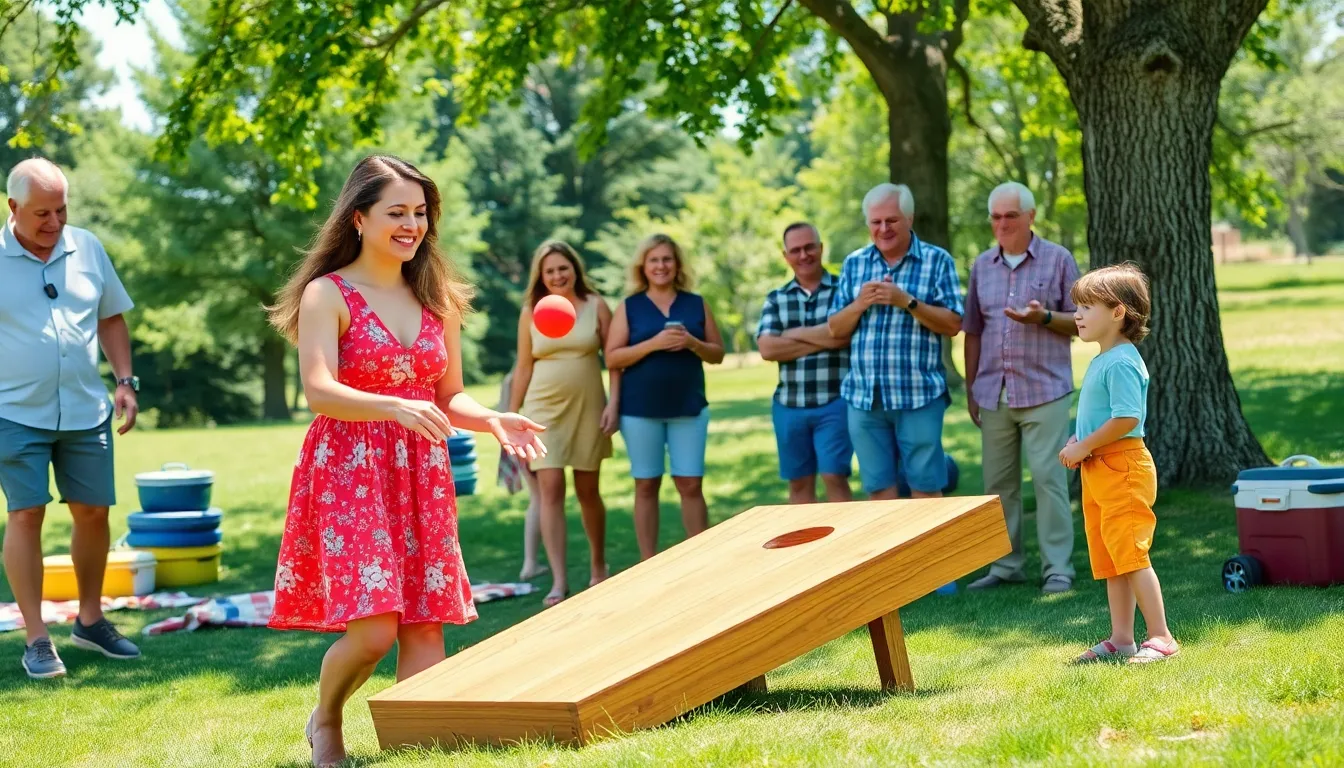Table of Contents
ToggleFamily reunions are the perfect excuse to gather everyone in one place and create unforgettable memories. But let’s face it—sitting around a picnic table for hours can get a little boring. That’s where outdoor games come in! They’re not just a way to break the ice; they’re a chance to unleash your inner child and maybe even settle a few long-standing family rivalries.
Benefits of Family Reunion Games Outdoor
Outdoor games enhance social interaction among family members. Engaging in these activities fosters stronger bonds and creates a sense of unity. Family members of all ages can participate, ensuring inclusivity and enjoyment for everyone. Physical activity promotes health, reducing stress and improving overall well-being.
These games encourage friendly competition, which can spark laughter and storytelling. Shared experiences lead to improved communication and understanding among relatives. Outdoor settings also offer natural scenery, contributing to a relaxed atmosphere that enhances enjoyment.
Participating in team-based games can revive memories of childhood and promote nostalgia. These activities often result in shared victories, strengthening family ties. Moreover, outdoor games provide an effective way to break the ice, especially for relatives who may not know each other well.
In terms of logistics, organizing outdoor games requires minimal equipment, making it simple to set up. Families also benefit from the opportunity to explore different locations, whether at parks or backyards.
Incorporating outdoor games adds fun and vitality to family reunions. These games not only entertain but also promote connection, laughter, and health, enriching the experience for everyone involved.
Popular Family Reunion Games Outdoor


Outdoor games engage family members and create lasting memories. Various types of games cater to diverse interests and abilities.
Yard Games
Yard games encourage friendly competition. Cornhole, for example, challenges players to toss bags onto a raised platform. Giant Jenga promotes teamwork as participants carefully pull blocks without collapsing the tower. Horseshoes requires throwing a metal shoe at a stake, combining strategy and skill. Bocce ball adds a classic twist, with players aiming to land balls closest to a target. These games are simple to set up and entertain participants of all ages.
Sports Activities
Sports activities capture the competitive spirit. Kickball, a favorite among many families, blends baseball and soccer elements, creating excitement. Volleyball can quickly spark enthusiasm, allowing teams to rally for points. A family relay race injects energy into the reunion; participants race in teams, fostering teamwork. Capture the flag engages everyone in action, combining strategy and movement. Each activity encourages physical fitness, promoting a fun way to stay active during the reunion.
Team Challenges
Team challenges strengthen bonds among family members. An obstacle course presents varying physical tasks, testing skills and resilience. Tug-of-war fosters teamwork by challenging two groups to pull against each other. Scavenger hunts, on the other hand, blend creativity and problem-solving as teams search for items based on clues. Trivia games involving family history spark conversations and laughter. Collaborative challenges promote communication and create a sense of unity, making these activities memorable.
Tips for Organizing Outdoor Games
Effective organization enhances outdoor games’ enjoyment at family reunions. Attention to detail makes activities memorable and engaging.
Choosing the Right Location
Selecting the location influences the success of outdoor games. Look for ample space to accommodate all participants and activities. Consider accessibility for family members of all ages. A flat, grassy area promotes safety during physical activities. Proximity to amenities like restrooms and shade can improve comfort. Evaluate the weather conditions, as completed plans might require adjustments depending on forecasted sunshine or rain.
Preparing the Necessary Materials
Gathering materials ensures smooth gameplay and enjoyment. Coordinate items based on chosen games, such as balls, cones, or boards. Invest in sturdy supplies that can withstand outdoor conditions. For example, durable equipment like kickballs and cornhole boards enhances longevity and fun. Keep backup supplies available in case of unexpected issues. Organizing supplies in a designated area simplifies setup and reduces stress on the event day.
Setting Up Teams and Rules
Establishing teams and clear rules encourages fair play and involvement. Divide participants equally to balance skills and enhance competitiveness. Using creative team names or colors fosters camaraderie. It’s beneficial to outline game objectives and rules before starting to clarify expectations. Encourage everyone to participate by emphasizing the importance of teamwork and communication. Avoid overcomplicating rules; simplicity ensures fun and understanding for all ages.
Safety Considerations
Safety remains a priority during family reunion games. Assess the playing area before activities begin. Ensure the space is free from hazards like sharp objects, uneven ground, or obstacles that could cause injuries. Designate an area for games to keep everyone informed about boundaries.
Supervision plays a crucial role, especially with children involved. Assign adults to oversee various game stations. Monitoring participants helps prevent accidents and manages the level of competition to keep it friendly and enjoyable.
Weather conditions can affect outdoor play. Keep an eye on the forecast and prepare for unexpected changes. Bring umbrellas or tents to provide shade or shelter from rain. Hydration stations should be available to keep everyone refreshed, especially in hot conditions.
First aid kits should be on hand for minor injuries. Stock kits with band-aids, antiseptic wipes, and ice packs. Familiarizing adults with first aid procedures can provide added peace of mind.
Understanding the physical abilities of attendees is essential. Choose games that accommodate varying fitness levels. Modify activities or create alternative options for those who may not participate in high-energy games.
Communication improves safety during play. Clearly explain rules and boundaries before starting the games. Share emergency contact information with all participants for quick access if needed.
Promoting teamwork is beneficial, too. Encouraging cooperation reduces the risk of competitive injuries. Highlighting camaraderie rather than rivalry fosters a positive atmosphere, ensuring everyone enjoys the experience.




